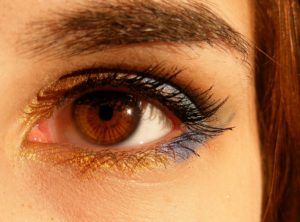Melatonin is often referred to as the master molecule. Its main responsibility is to regulate our biological clocks but it also has several profound health effects. Melatonin is made in the pineal gland which is a pea sized gland at the base of the brain.
Melatonin is a tiny molecule consisting of a few oxygen, hydrogen, carbon and nitrogen atoms and the human body produces around 30 micrograms each day. Our biological rhythm is controlled by the secretion of melatonin. As it gets dark and less light hits the retina in the eye the pineal gland secrets melatonin to make us drowsy and induce sleep. As the sun rises again the light hitting the retina shuts off the production of melatonin and we begin to feel lively and awake again.
Scientists have shown with experiments on mice that it is not the amount of melatonin in the blood per se that is important but the rhythm of secretion in any 24 hour period that matters the most.
Melatonin has several large health benefits. It is a powerful antioxidant and voracious free radical scavenger and also regulates the immune system. This is one of the reasons that you often get sick if you miss out on sleep for a few days. The lower levels of melatonin due to the lack of sleep mean your immune system is not as primed as it normally would be to ward off attacks by cold and flu viruses.
Scientists have discovered that the main organs of the immune system, namely the thymus and the spleen, have numerous receptors for melatonin so when there is sufficient levels of melatonin in the blood stream the melatonin molecules attach themselves to the organ receptors and stimulate the immune system.
 Free radicals are everywhere and we produce them in our own bodies. They are toxic and can often lead to diseases such as cancer. Melatonin helps to neutralize free radicals and is the most powerful neutralizer of hydroxyl radicals ever detected. Melatonin is a powerful antioxidant and can therefore help reduce the risks associated with heart disease and cancer. Both of these diseases are considered conditions of aging and melatonin production declines with age which may go some way to explaining its benefit.
Free radicals are everywhere and we produce them in our own bodies. They are toxic and can often lead to diseases such as cancer. Melatonin helps to neutralize free radicals and is the most powerful neutralizer of hydroxyl radicals ever detected. Melatonin is a powerful antioxidant and can therefore help reduce the risks associated with heart disease and cancer. Both of these diseases are considered conditions of aging and melatonin production declines with age which may go some way to explaining its benefit.
Melatonin can be found in certain foods such as bananas and oats but it is predominantly made in the body from the amino acid tryptophan. It is converted into serotonin which is a neurotransmitter in the brain before it is converted into melatonin. The conversion rate is aided by the vitamin B6.
Melatonin can be taken as a supplement and some Doctors prescribe it in doses up to 100 milligrams per day. There are no long term studies on humans as to the effects of taking melatonin as a supplement, however, it is generally regarded as safe when taken at prescribed dosages.
Melatonin really is an amazing molecule. It controls the human circadian rhythm and can have profound health benefits when produced at optimal levels and timings. It is also available in supplement form and is generally considered safe if taken sensibly as prescribed by a physician.
